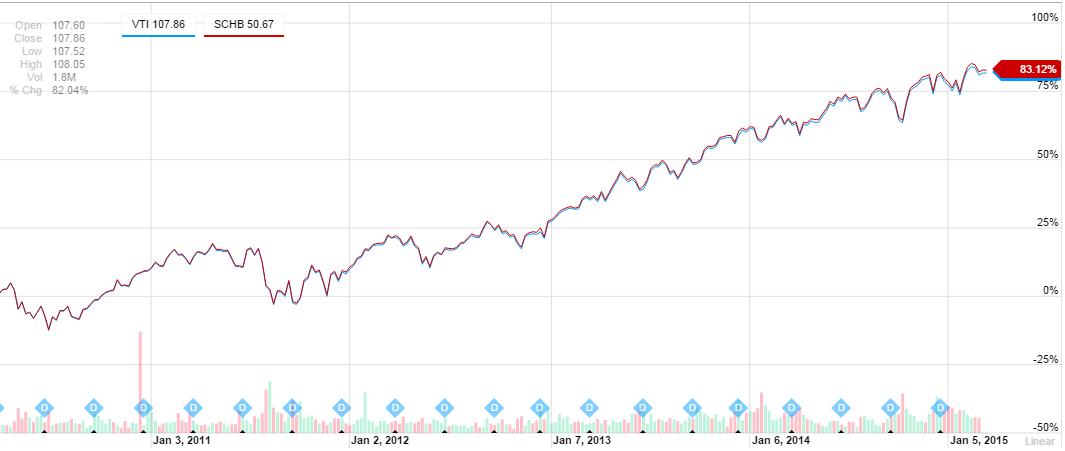Tis The Season For TaxLoss Harvesting_1
Post on: 16 Март, 2015 No Comment

Category Archives: Awesome!
Early Retirement Interview with AOL Daily Finance
A few weeks ago I received an email from Erin, a journalist who writes for AOLs Daily Finance. Erin, who also blogs at Broke Millennial. was working on a story about the plight of Millennials who are (on average) deep in debt and are facing working for 50 years before they can retire.
Erin determined that perhaps there was some way to work less than 50 years before retiring, even if you graduate college with debt. Erin identified a number of 20- and 30-somethings that have retired (me) or are on the path to retiring at a very early age (Nate a.k.a. Johnny Moneyseed. Carl at 1500 Days to Freedom. and Kay at Green Money Stream ).
Its cool to be grouped in with these other guys, since I was reading their well developed blogs when Root of Good was nothing more than a couple of posts and a home page.
Here is the final article at AOL Daily Finance: Millennials: Its Not Too Late to Plan for an Early Retirement. In case you are too lazy to go read the article, heres the summary. Save a bunch of your income, dont plan on spending more than 4% of your savings during early retirement, and look for easy ways to make supplemental income after you leave the full time corporate world.
Erin conducted the interview by emailing me a series of questions. Here are her questions followed by my answers in full. I added an additional comment in italics below to further explain my initial response I sent to Erin.
1) When did you make the decision to retire early (or make it your goal)?
rootofgood. com/early-retirement-at-33-an- overview/
2) What financial moves did you make to have enough saved to retire at 33? How much is enough?
rootofgood.com/ make-six-figure-income-pay-no- tax/
I also managed to save additional funds in a brokerage account each month. I own a modest (but decent) house that cost way less than the mortgages I could have qualified for. Same with my car Im still driving the Honda I bought brand new in college (13 years ago).
Enough is a very personal choice, but I feel comfortable with a paid off house and a little over a million bucks.
3) What was your job before you retired?
I started out my career as a transportation engineer. I never made more than $70,000 per year at my job (and started out much lower). Because of the Great Recession falling in the middle of my career, I did pretty poorly in terms of increasing my salary. I earned raises and promotions often enough, but a number of years of no raises led to inflation eating away most of my raises. I ended my career earning only 16% more (after inflation) than when I started fresh out of college. Thats proof that you can save and invest for early retirement even in a stagnant employment market just make sure you are valuable or flexible enough to keep a job when recessions hit.
4) What do you do now to bring in money?
Transfer dividends from my brokerage accounts to my checking account! Our investments more than cover our expenses. I also make enough from my blog at rootofgood.com to cover a portion of my monthly expenses. I also get a couple thousand dollars each year from credit card sign up bonuses, participating in focus groups and research studies or other odd (but easy) ways to make money.
5) How can a millennial with debt realistically plan to retire early?
With a heavy debt burden in your 20s, retiring at 33 may be impossible without severely sacrificing quality of life (something I refuse to do personally, and wouldnt recommend). The key is focusing on getting your income high enough to
- pay down your debt over a reasonable time frame,
- allow a comfortable (not lavish) lifestyle, and
- save some money (and increase savings as you get raises)

6) Do you plan to help fund your childrens college educations?
Yes; we are lucky to have very affordable and good state universities nearby (in North Carolina). Im a product of two of them! We have dedicated savings in a 529 to cover 2 years tuition for our 3 kids, and they are still 10-17 years away from college, so the 529 savings will only grow over that time period. I expect they will pay a part of college expenses through working during high school and college (mostly summers and breaks), babysitting money, tutoring, or whatever other hustles they come up with. There are also tons of opportunities to earn or access money during their university years work study, grants, student loans, scholarships, being research assistants or resident advisers. Well fund the rest from our investment portfolio. The quick and dirty answer is college will be funded from a wide variety of sources. We arent averse to our children taking on student loans. After all, college should greatly increase their earnings potential, so taking on a little debt to fund it is an investment.
7) How much money do you have to live off of year-to-year?
rootofgood.com/ developing-a-retirement- budget/ The $32,000/yr doesnt include rent or a mortgage hence the importance of a paid off house.
I wanted to add that we still owe a smallish amount on the mortgage and will pay it off over the next three years. We have savings designated for mortgage repayment on top of what we need to support $32,000/yr spending from our investments. The mortgage is at 1.99% so we arent in a hurry to repay it faster than the regular monthly payments.
8) What are the top things you sacrificed in order to retire early?
I dont really feel like I sacrificed a lot. We have traveled the world, started raising three kids, and have a decent house and reliable cars. We have computers, high speed internet, smart phones, HDTVs, gourmet foods, etc. Life is pretty amazing.
Objectively speaking, others would say we are missing out on:
- getting sloshed at bars and nightclubs (no thanks)
- attending the Ballet or Symphony (interesting to watch for a few minutes on youtube, otherwise yaaawn)
- fancy restaurants (we cook pretty well at home and its more comfortable anyway)
- and living in a mansion and driving luxury cars (our 4 bedroom lakefront house in the city is pretty awesome to us, and I tend to walk to most places instead of drive anyway)
9) Is there a typical reaction you get when you tell people youre retired?
It rarely comes up honestly. I dont make a big deal out of it in real life. Im more than happy to discuss finances and how to get on the path to financial independence but most people dont seem that interested (wonder why?!).
All my friends and family that know about my early retirement seem to be genuinely supportive and happy.
10. Anything else youd like to add?
General advice:
-Things may look pretty bleak to millennials today. But remember that our parents and grandparents have lived through very difficult economic environments over the last half century (and many thrived in spite of difficult times). Steep inflation and crappy economy in the 1970s, recessions in the early 1980s, a 23% stock market crash in one day in 1987, soft economy and bad job environment in the early 1990s. These difficult times all presented challenges to the respective generations coming of age in the thick of it. And the generation coming of age in the 2000s has received an excellent crash course in financial disasters through the dot com/September 11 crash and the Great Recession. Unfortunately, these wont be the last periods of economic turbulence during our lifetimes. Work hard on enjoying life today, but dont get caught off-guard the next time a recession strikes. The fact that recessions hit is certain; the timing, duration or extent of the next one isnt certain. But times are always better after a recession!
-Consider moving to a lower cost area if you are just starting out in life. Elsewhere, housing prices can be a quarter or a tenth of what they are in places like SF or NYC. Salaries are often not that much lower. NYC and SF dont hold a monopoly on entertainment, dining, and culture. Take a look at Austin, Nashville, Raleigh, or Atlanta, for example.














